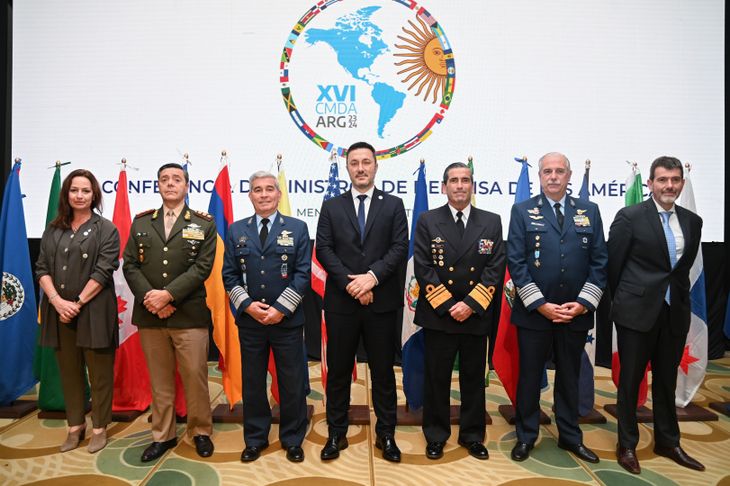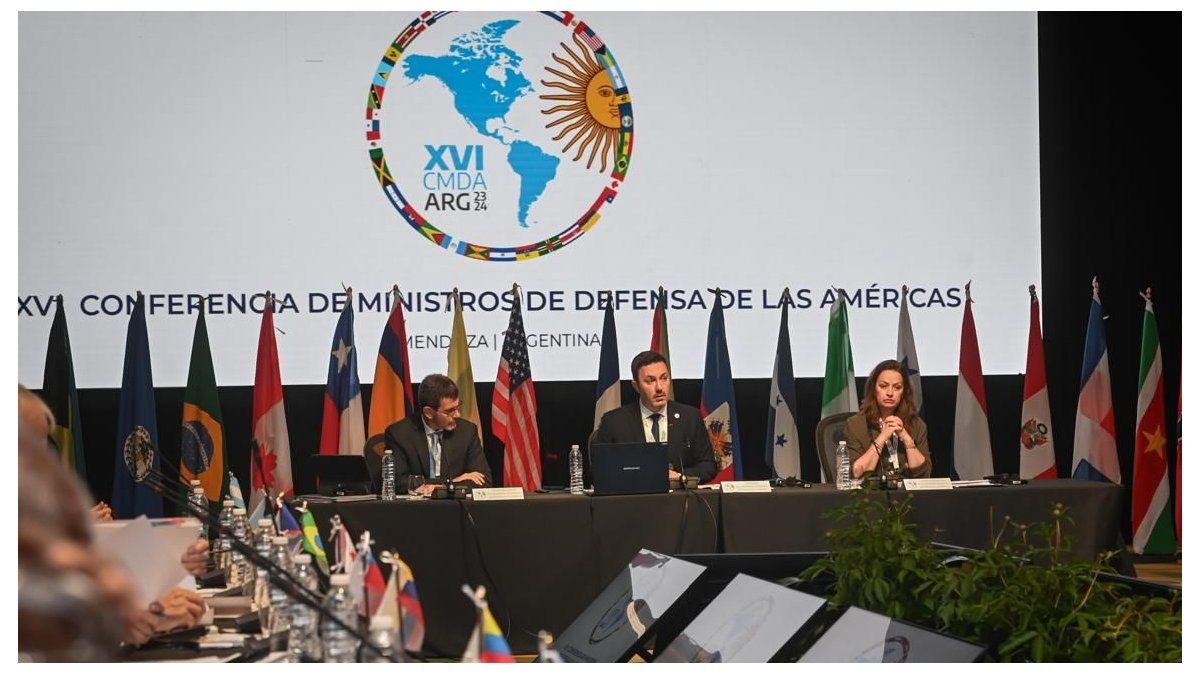The document was agreed upon after the work sessions carried out between October 13 and 16 in the province of Cuyo. At the meeting, the participating ministers sought, as in every summit, that the final declaration contains matters of interest to their respective countries and, if it occurs, that there is the most homogeneous perception possible regarding the framing of the current conflicts and their effect. in the hemispheric defense sector.
Conference of Defense Ministers in Mendoza: the position before the world in conflict
Three issues were the most debated before being able to produce a text that agreed with everyone. On the one hand, the conflict between Russia and Ukraine, added to the situation in Israel and the war in Gaza with the addition of Iran and the terrorist arm Hamas and Hezbollah. Finally, the scenario of what is happening in Haiti.
After that first paragraph of rigor that is repeated in each statement, the heads of hemispheric defense made explicit the differences in how they perceive those conflicts that today have the world in suspense.
The most sensitive paragraph of the Mendoza Declaration due to its involvement in the international system and the scourge of terrorism, it remained as follows: “There is a complex environment of international peace and security that has effects on our hemisphere and to express its concern about active armed conflicts at a global level. They reiterate their condemnation of Russia’s invasion of Ukraine and their call for an immediate cessation of hostilities. Likewise, they express their concern about the escalation of violence in the Middle East and indiscriminate attacks to the detriment of the civilian population.”
defense ministers conference 3.jpg
Summit of Defense Ministers in Mendoza.
Ministry of Defense
The recognition of international terrorism as a threat to the stability of the region was an objective that Minister Petri had.
Semantics matter, given that the text left out the word “terrorism” and was attenuated by idiomatic expressions that avoided the categorical definition of the threat.
The motion generated reservations that were recorded: Argentina, Canada, Ecuador, the United States, Guatemala, Paraguay and Uruguay maintained that they “reiterate their condemnation of Russia’s invasion of Ukraine and validate Israel’s right to defend itself.”
For its part, Chile condemns the terrorist attacks perpetrated by Hamas and “considers Israel’s response disproportionate,” while Mexico raised an objection and did not adhere, stating that “the paragraph in question does not correspond to the scope of the Conference of Ministers of Defense and “The appropriate forum to discuss it is the United Nations (UN).”
The attribution of domestic evils to instigation and interference is a known fact and always encouraged by vernacular nationalisms throughout the region. “northern”, criticism that was partially diluted because the Secretary of Defense of the United States, Austin Lloyd, did not attend the Conference. Although the Secretary of the Navy, Carlos del Toro, a retired naval officer, graduated in aerospace engineering, and General Laura Richardson, head of the Southern Command, did participate, enough raw material for resistance in the case in some delegations such as Mexico on the issue of the crisis of Haiti.
The Haitian issue was brought up for consideration by the United States. Just by coming from the Pentagon delegation, it activates the virus of opposition in countries suspicious of the alleged backyard dirigisme attributed to Washington.
Haiti, crossed by the extreme violence of armed gangs with drug ties, leads to regional and international migratory movements where criminal actors sneak in with a destabilizing effect, for example in the Dominican Republic and the United States. Another similar phenomenon is produced by the Nicolás Maduro regime with more than 8 million migrants.
defense ministers conference.jpg

Luis Petri and members of the Armed Forces.
The Declaration contemplated the situation in the Caribbean country and called for urgent concrete measures to be carried out by member states, “financial contributions, equipment and personnel to the Multinational Security Support Mission (MSS) in Haiti.”
Regarding this last topic, some views that still separate the use of the armed forces from the security forces when it comes to subduing non-military, non-state gangs or factions that put the government and citizens at risk are controversial.
Every two years, the host country of the event alternates among the 34 nations that make up the forum. Argentina, with the approval of all the ministers, passed the testimony to Peru, which will take charge of the pro tempore presidency for the next biennium.
An issue of growing concern remained firm: working out how to align the military cooperative mechanism with solutions to the impact of climate change.
Cyber defense and cyberspace; women, peace and security; Cooperation in humanitarian assistance and disaster relief was also recognized in the final text.
Source: Ambito




